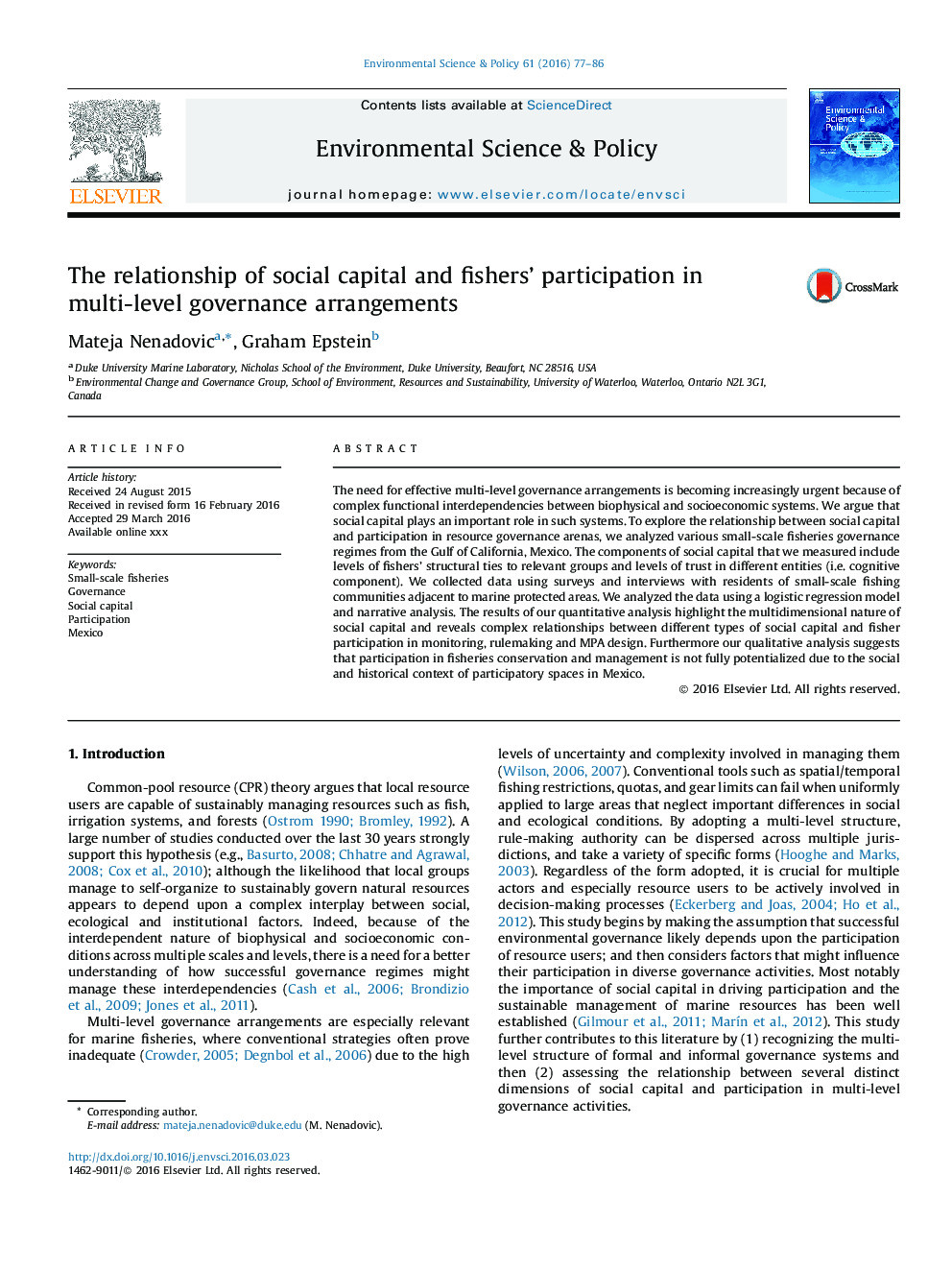| Article ID | Journal | Published Year | Pages | File Type |
|---|---|---|---|---|
| 7466825 | Environmental Science & Policy | 2016 | 10 Pages |
Abstract
The need for effective multi-level governance arrangements is becoming increasingly urgent because of complex functional interdependencies between biophysical and socioeconomic systems. We argue that social capital plays an important role in such systems. To explore the relationship between social capital and participation in resource governance arenas, we analyzed various small-scale fisheries governance regimes from the Gulf of California, Mexico. The components of social capital that we measured include levels of fishers' structural ties to relevant groups and levels of trust in different entities (i.e. cognitive component). We collected data using surveys and interviews with residents of small-scale fishing communities adjacent to marine protected areas. We analyzed the data using a logistic regression model and narrative analysis. The results of our quantitative analysis highlight the multidimensional nature of social capital and reveals complex relationships between different types of social capital and fisher participation in monitoring, rulemaking and MPA design. Furthermore our qualitative analysis suggests that participation in fisheries conservation and management is not fully potentialized due to the social and historical context of participatory spaces in Mexico.
Related Topics
Physical Sciences and Engineering
Energy
Renewable Energy, Sustainability and the Environment
Authors
Mateja Nenadovic, Graham Epstein,
